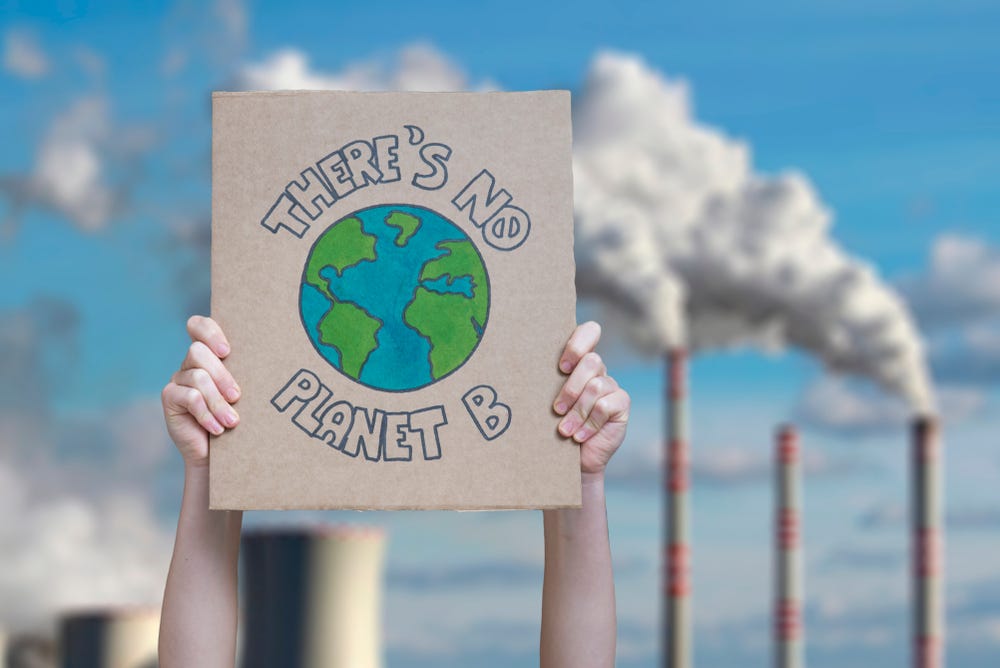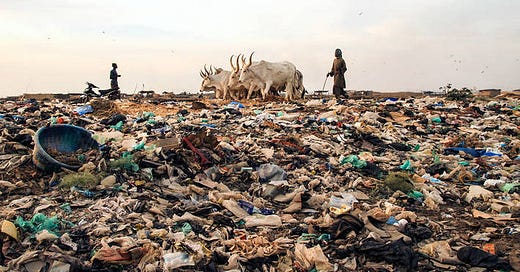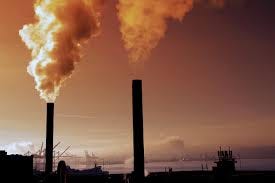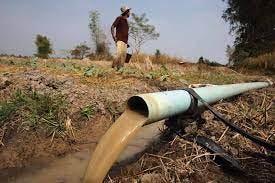Pollution and Climate Change
Pollution causes the climate to change, and climate change causes air quality to change.
Pollution and its contribution towards Climate change.
14th- December-2021
By Sofía Cristóbal and Sarah Nabulya
Pollution is the presence of any substance in air, water, soil, or food that threatens human health, animal, and plant life and is a global problem in every continent, even in remote areas.
They are different types of pollution and they include; soil pollution, air pollution and water pollution. Each affects the environment in a different way [source: Energy Education]. Soil pollution is the most common type of pollution since the soil is the most recipient of contaminants. These contaminants lead to pollution which is not only a threat to soil health but the whole ecosystem. Polluted soil can act as a source of contaminants for all environmental compartments including air, water, food and organisms including human health.
There are a lot of causes of soil pollution but major include: mining, waste, agriculture, fossil fuels extraction and processing, transport emission and industrial activities. Global annual production of industrial chemicals from industrial activities has doubled to approximately 2.3 billion tones and is projected to increase by 85% by 2030 hence increasing soil pollution.[source: FAO]
On the other hand, Agriculture is also contributing to soil pollution hence increasing carbon emissions which are triggering abnormally increasing temperatures. The different inorganic and organic fertilizers, pesticides, untreated wastewater used to lead to excessive soil pollution. Nitrogen fertilizers applied to soil undergo a nitrification process which leads to the production of significant and rapid acidification. Nitrates accumulate and can easily reach groundwater. Nitro oxide is released from excessively fertilized soils which is the major greenhouse gas, contributes to climate change when it is released into the air [source: FAO ]
Air pollution both natural and human activities pollute the air, and this is often seen as one of the main problems of pollution as it contributes to the pollution in the following two (soil and water) as well [source: Energy Education]. On the other hand, it is caused by emissions of nitrogen oxides, methane, and other volatile organic compounds that combine in the lower atmosphere to produce ozone.
Other factors such as Industrial activities, gasses from old vehicles, burning of solid fuels such as wood in developing countries also contribute to air pollution. When carbon-based fuels are burned, incomplete combustion causes the emission of carbon dioxide and other air pollutants. Black carbon emitted from domestic burning of solid fuels and highly-emitted diesel engines is likely to increase air pollution hence climate warming. High reliance on solid fuel such as wood for indoor cooking, is estimated to be responsible for 1.8million deaths from indoor smoke pollution.
Air pollution is the greatest environmental threat to public health globally and accounts for an estimated 7 million premature deaths every year. Air pollution and climate change are closely linked as all major pollutants have an impact on the climate and most share common sources with greenhouse gases. Improving our air quality will bring health, more net development, and environmental benefits, along with mitigating climate change.[source: unep.org]
The other type of pollution is water pollution, which is caused mainly by polluted soil and air and other human contributed factors such as disposal of waste. Agriculture, which accounts for 70 % of water withdrawals worldwide, plays a major role in water pollution. Farms discharge large quantities of agrochemicals, organic matter, drug residues, sediments, and saline drainage into water bodies can lead to increased levels of nutrients in water hence causing the growth of algae. When this alga dies, bacteria can lower the level of oxygen in the water creating dead zones where nothing can live. [source: FAO]
Soil and environmental pollution is therefore expected to increase unless there is a rapid shift in production and consumption patterns and a political commitment towards real sustainable management where nature is fully respected.
Health costs of ozone pollution are likely to worsen under climate change. Pollution contributes a lot to climate change and this ought to be acted upon quickly. This can only be achieved when a gap between the communities and organizations taking part in fighting pollution and climate change is covered through collaboration and engagement.

If you want to read more about this topic, we wrote about COP26, Why did it matter? and Malnutrition in African countries.
You want to know more about Climate change and understand the global picture to see how we can act as nations and as individuals, stay tuned for our upcoming events.







